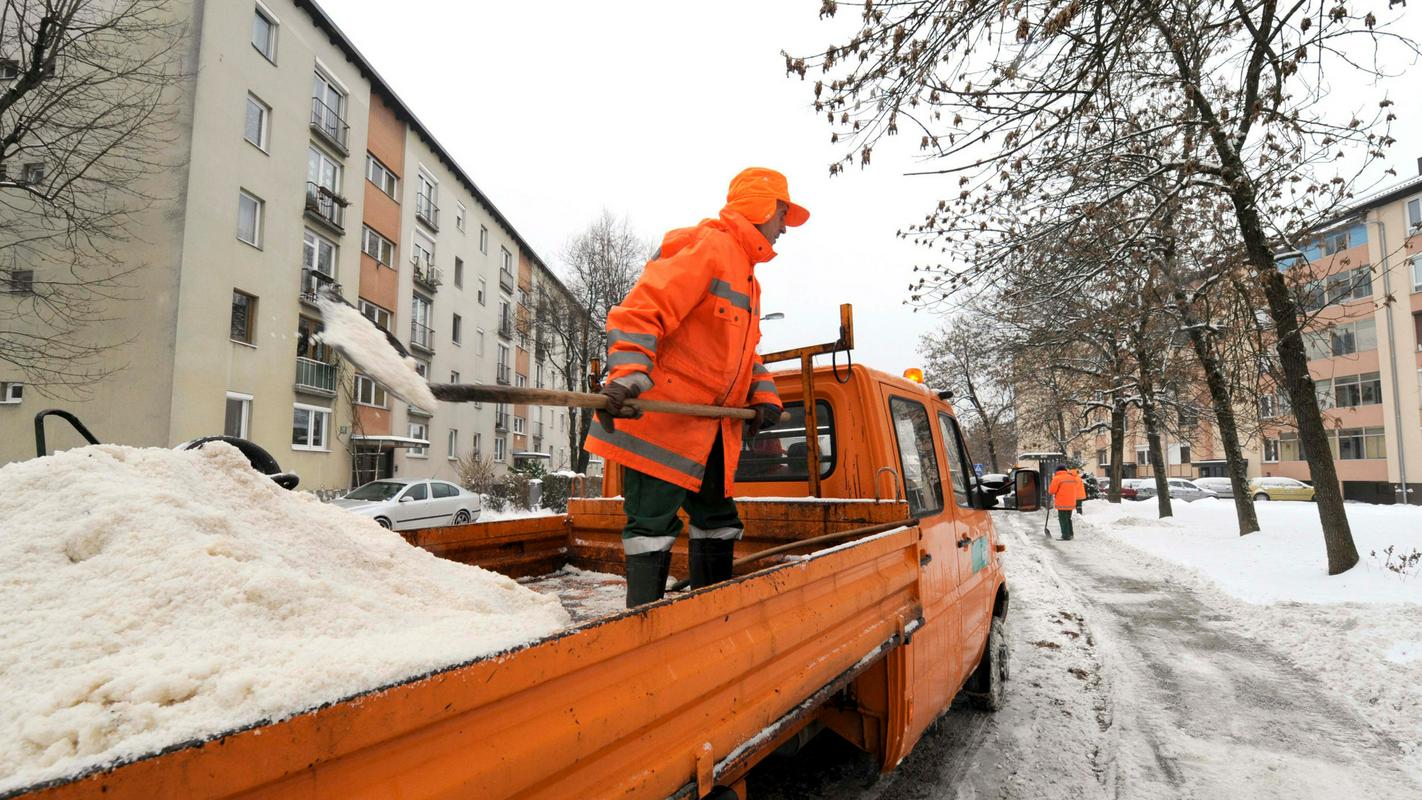
We’ve reported multiple times this winter about black ice danger on the roads. In many places across Slovenia, pedestrians received an unpleasant surprise – the pavements and other public surfaces were not ploughed or otherwise cleaned in time. The locals in Sežana frowned upon salting the road with salt that contained bits of prosciutto. The matter was investigated by the environmental inspection and banned the Kras company from selling waste salt to the local utility service company. Have Slovenian roads been salted with waste salt?
Company chosen through public tenders
Several Slovenian companies sell and deliver road salt, which is used to melt snow and ice as well as keep water from freezing. Last year a Koper-based company called Portval, which is primarily registered for water transport services, joined the group of larger salt suppliers. This winter the company delivered salt to the following municipalities: Velike Lašče, Sevnica, Trebnje, Litija, Beltinci, Ribnica, Dobrna, Tolmin and Rogaševci.
Portval had been chosen through public tenders for offering the lowest price. Although the company denies any wrongdoing, all of the applicable utility service companies except for three have confirmed that some deliveries contained salt that had a strange colour and unpleasant smell.
Roman Ciglar, director of Komunala Litija, explains that the public tender was carried out in cooperation with the public utility services of Sevnica and Trebnje municipalities. “Portval won the tender by offering the lowest price. The delivery of salt was not problematic but the salt had a strange smell. We notified the company and were told that the salt was simply like that and that they had done the analyses. However, the smell is not part of compulsory analyses.”
And what was the smell like? “It smelled of chicken farms or animal skin industries. Deliveries differed somewhat but all had an unpleasant smell.”
Analyses of salt samples fit technical requirements
In addition to salt, the supplier also delivered analyses of salt samples. These fulfilled the so-called technical requirements issued by the Infrastructure Directorate for state-owned roads. The requirements specify the granulation, humidity content, insoluble substances, sodium chloride and sulphates, heavy metals as well as substances against salt coagulation. However, they do not include any regulation regarding the smell or colour of salt and whether or not it should be checked for fat content.
Portval: It’s not waste salt
The company has fiercely denied any speculation that the salt could have originated from Italy’s meat processing industry as a waste product. However, since all information regarding the manner of obtaining, processing and importing the salt is a trade secret, Portval is not willing to provide more information but has emphasized that accredited laboratories confirmed the salt as adequate.
Analysed only for regulation requirements
Salt analyses are also performed by the Slovenian National Building and Civil Engineering Institute. However, the institute only analyses if samples fit regulation requirements but not colour, salt and fat.
We’ve also contacted the Ministry of the Environment and Spatial Planning to check if waste salt from Italy could indeed have been imported, as our unofficial sources suggest. A ministry representative explains that the transport of waste, including salt, across the border is allowed but that it is illegal to deposit the cargo in the environment or use it in unregulated trading, which may be fined from 10,000 to 30,000 euros.
Tjaša Škamperle and Mariša Bizjak, Radio Koper; translated by K. Z.

































































